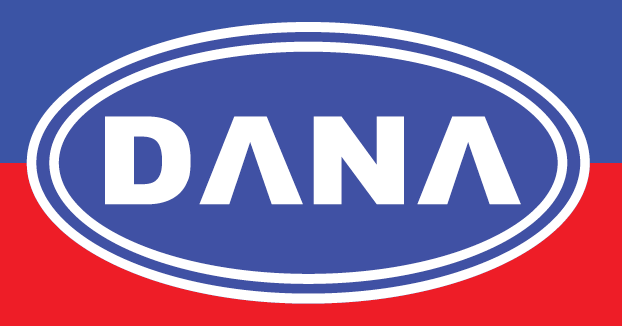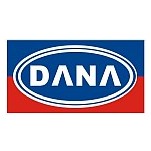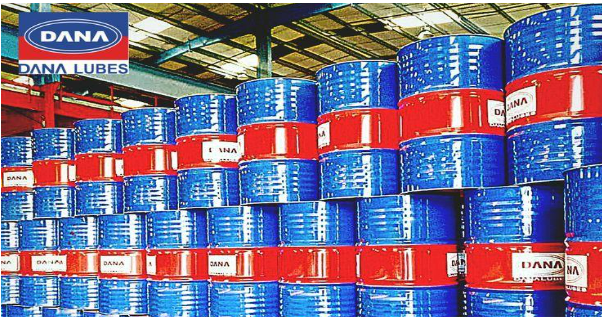OEM Manufacturing of Engine Oil for Vehicle manufacturers
OEM manufacturing, also known as Original Equipment Manufacturer manufacturing, refers to the process of producing goods or components that are used in the production of
another company’s final product. In the context of engine oil, OEM manufacturing involves the specialized production of lubricants specifically tailored for vehicle manufacturers.
Overview of Engine Oil and its Importance
Engine oil is the lifeblood of any vehicle’s engine. It serves multiple crucial functions, such as lubricating moving parts, reducing friction, cooling the engine, and protecting against wear and tear. Without proper engine oil, the performance, longevity, and fuel efficiency of vehicles would suffer, making it a vital component for vehicle manufacturers to consider.
Importance of Engine Oil for Vehicle Manufacturers
Engine Oil’s Role in Vehicle Performance and Longevity
Think of engine oil as the superhero cape of a vehicle’s engine. It keeps all the components running smoothly, reducing friction and preventing excessive wear and tear. With the right engine oil, vehicles can perform at their best, delivering optimal power and efficiency, while also prolonging the engine’s lifespan.
Impact of Engine Oil on Fuel Efficiency
Saving money at the gas pump is something we can all appreciate. Well, guess what? The right engine oil can actually help improve fuel efficiency. When the engine is properly lubricated, it can operate more efficiently, reducing friction and allowing for smoother movement. This means you’ll spend less time and money refueling your vehicle.
Engine Oil’s Influence on Emissions and Environmental Regulations
The environment is a big deal these days, and for good reason. Vehicle emissions contribute to air pollution and climate change. Engine oil plays a crucial role in minimizing harmful emissions by reducing the friction and heat generated within the engine. By using high-quality engine oil, vehicle manufacturers can comply with stringent environmental regulations and contribute to a cleaner and greener world.
Key Considerations in OEM Engine Oil Manufacturing
Customization and Formulation for Different Vehicle Types
Just like a good tailor, OEM engine oil manufacturers need to create products that perfectly fit different types of vehicles. From sedans to SUVs, each vehicle has its own unique engine specifications and requirements. OEM engine oil manufacturers must customize and formulate their products to meet these specific needs, ensuring optimal performance and protection.
Adherence to Vehicle Manufacturer’s Specifications and Standards
Imagine trying to put a square peg in a round hole. It’s just not going to work, right? Similarly, OEM engine oil manufacturers must adhere to the specifications and standards set by vehicle manufacturers. This ensures compatibility and reliability, allowing the engine oil to work seamlessly with the engine and other components.
Balancing Performance, Cost, and Sustainability Factors
It’s all about finding the sweet spot. OEM engine oil manufacturers must strike a balance between performance, cost, and sustainability factors. They need to create high-quality engine oil that delivers exceptional performance, meets budget constraints, and aligns with environmental sustainability goals. It’s a delicate dance that requires expertise and innovation.
OEM Manufacturing Process for Engine Oil
Sourcing and Selection of Raw Materials
It’s time to go shopping! OEM engine oil manufacturers carefully source and select the raw materials needed for their formulations. This includes base oils, additives, and other specialized ingredients. Quality and consistency are of utmost importance, as they directly impact the final product’s performance.
Blending and Mixing of Ingredients
Let the mixing begin! Once the raw materials are gathered, OEM engine oil manufacturers blend and mix them to create the desired formulation. This is a delicate process that requires precise measurements and expertise to achieve the perfect balance of viscosity, lubricity, and other essential properties.
Packaging and Labeling
It’s time to give the engine oil its final makeover. OEM engine oil manufacturers package and label the finished product, making it ready for distribution. The packaging must be durable, leak-proof, and convenient for end-users, while the labeling provides important information on usage, specifications, and compliance.
Quality Control and Testing in OEM Engine Oil Manufacturing
Ensuring Consistency and Stability of Engine Oil Composition
When it comes to engine oil, consistency is key. Vehicle manufacturers rely on OEM engine oil to provide consistent performance and protection for their engines. To achieve this, OEM manufacturers implement stringent quality control measures to ensure the composition of the engine oil remains stable throughout production. This includes carefully monitoring the ingredients, mixing processes, and packaging to minimize any variations that could impact the oil’s performance.
Performance Testing and Validation
Before OEM engine oil makes its way into vehicles, it undergoes rigorous testing and validation to ensure it meets the performance standards set by vehicle manufacturers. This includes evaluating its ability to withstand extreme temperatures, resist oxidation and wear, and provide efficient lubrication. By subjecting the engine oil to various simulations and tests, OEM manufacturers can confidently assure vehicle manufacturers that their engines will receive the optimum protection and performance.
Compliance with Industry Standards and Regulations
OEM engine oil manufacturers understand the importance of adhering to industry standards and regulations. They invest in research and development to stay updated with the latest requirements and ensure their products comply with international quality and environmental standards. By doing so, OEM manufacturers assure vehicle manufacturers that their engine oil not only meets the performance requirements but also aligns with sustainability and safety concerns.
Challenges and Solutions in OEM Engine Oil Manufacturing
Managing Supply Chain Complexity
With the global automotive industry growing rapidly, OEM engine oil manufacturers face the challenge of managing complex supply chains. Coordinating the sourcing of raw materials, production, and distribution can be a daunting task. However, with effective supply chain management systems and partnerships with reliable suppliers, OEM manufacturers can overcome this challenge and ensure a smooth and efficient manufacturing process.
Adapting to Evolving Vehicle Technologies
As vehicle technologies continue to advance, OEM engine oil manufacturers must adapt to meet the changing requirements. From hybrid and electric vehicles to engines with higher performance demands, OEM manufacturers need to develop engine oil formulations that are compatible with these evolving technologies. By staying proactive and investing in research and development, OEM manufacturers can stay ahead of the curve and provide engine oils that cater to the latest vehicle technologies.
Addressing Environmental and Sustainability Concerns
Environmental consciousness and sustainability are significant concerns in today’s world. OEM engine oil manufacturers recognize the importance of reducing the environmental impact of their products. They invest in developing eco-friendly formulations, utilizing renewable resources, and implementing responsible manufacturing practices. By addressing these concerns and offering greener alternatives, OEM manufacturers can contribute to a more sustainable automotive industry.
Future Trends and Innovations in OEM Engine Oil Manufacturing
Advancements in Additive Technology
The future of OEM engine oil manufacturing lies in advancements in additive technology. Additives play a crucial role in enhancing the performance and longevity of engine oil. OEM manufacturers are continually researching and developing new additives to improve engine protection, fuel efficiency, and reduce emissions. With innovative additive technology, OEM engine oil can further optimize engine performance, resulting in better overall vehicle performance.
Exploration of Bio-based and Synthetic Alternatives
As the demand for sustainable alternatives continues to increase, OEM engine oil manufacturers are exploring bio-based and synthetic alternatives to traditional petroleum-based oils. Bio-based oils, derived from renewable sources, offer reduced environmental impact and can meet the performance requirements of modern engines. Additionally, advancements in synthetic oil formulations can provide enhanced engine protection and performance, catering to the evolving needs of vehicle manufacturers.
Integration of IoT and Big Data Analytics
The integration of Internet of Things (IoT) technology and big data analytics is revolutionizing various industries, and OEM engine oil manufacturing is no exception. By incorporating IoT sensors in engines and vehicles, OEM manufacturers can gather real-time data on engine conditions, oil performance, and maintenance needs. This data can then be analyzed using big data analytics to identify patterns, optimize engine oil formulations, and provide predictive maintenance recommendations. The integration of IoT and big data analytics holds the potential to enhance engine performance, prolong engine life, and improve overall vehicle reliability.In conclusion, OEM manufacturing of engine oil is a critical aspect of vehicle manufacturing, ensuring optimal performance, efficiency, and sustainability. By adhering to strict standards, utilizing advanced manufacturing processes, and continuously innovating, OEMs can deliver high-quality engine oil that meets the specific needs of different vehicle types. As technology and environmental concerns evolve, the industry continues to adapt and explore new possibilities. With advancements in additive technology, exploration of bio-based and synthetic alternatives, and integration of IoT and big data analytics, the future of OEM engine oil manufacturing holds promising developments. Ultimately, the quality and effectiveness of engine oil directly impact vehicle performance, making OEM manufacturing an essential component in the automotive industry.
——————————————————————————————————
About US
DANA Lubricants Factory LLC (DANA LUBES) is an ISO 9001: 2015 Certified, API Approved UAE BASED Lubricant Oil Manufacturer in Dubai, OILS & GREASE is Quality Manufacturer & Supplier of Automotive, Industrial & Marine Lubricant Oils. Established in 2002, we are part of well-known Industrial Conglomerate DANA GROUP based in Dubai UAE (www.danagroups.com). We are exporting to more than 70 countries worldwide including Europe, Asia, Africa, South & Central America, Australia and GCC(Arab Countries).
Dana Lubricants are formulated to the highest international standards & specifications as per: –
- American Petroleum Institute (API Certificate – DANA LUBRICANTS FACTORY LLC UAE)
- Society of Automotive Engineers (SAE)
- US Military (MIL)
- Machine manufacturers like Mercedes Benz, BMW, Porsche, GM, Ford, Volvo, MACK, MAN, Caterpillar, Komatsu, Toyota & others.
- As per Customer Formulation (OEM Basis)
DANA LUBRICANTS FACTORY LLC
PO Box 14761, Ajman, UAE
Location: Opposite Hamriyah Free Zone 2,
Gate number 3, Ajman. U.A.E.
Tel : +971-4-2217273 Fax : + 971-4-2215940
WhatsApp : 00971-50-7983153
Email : info@danalubes.com / info@danagroups.com



